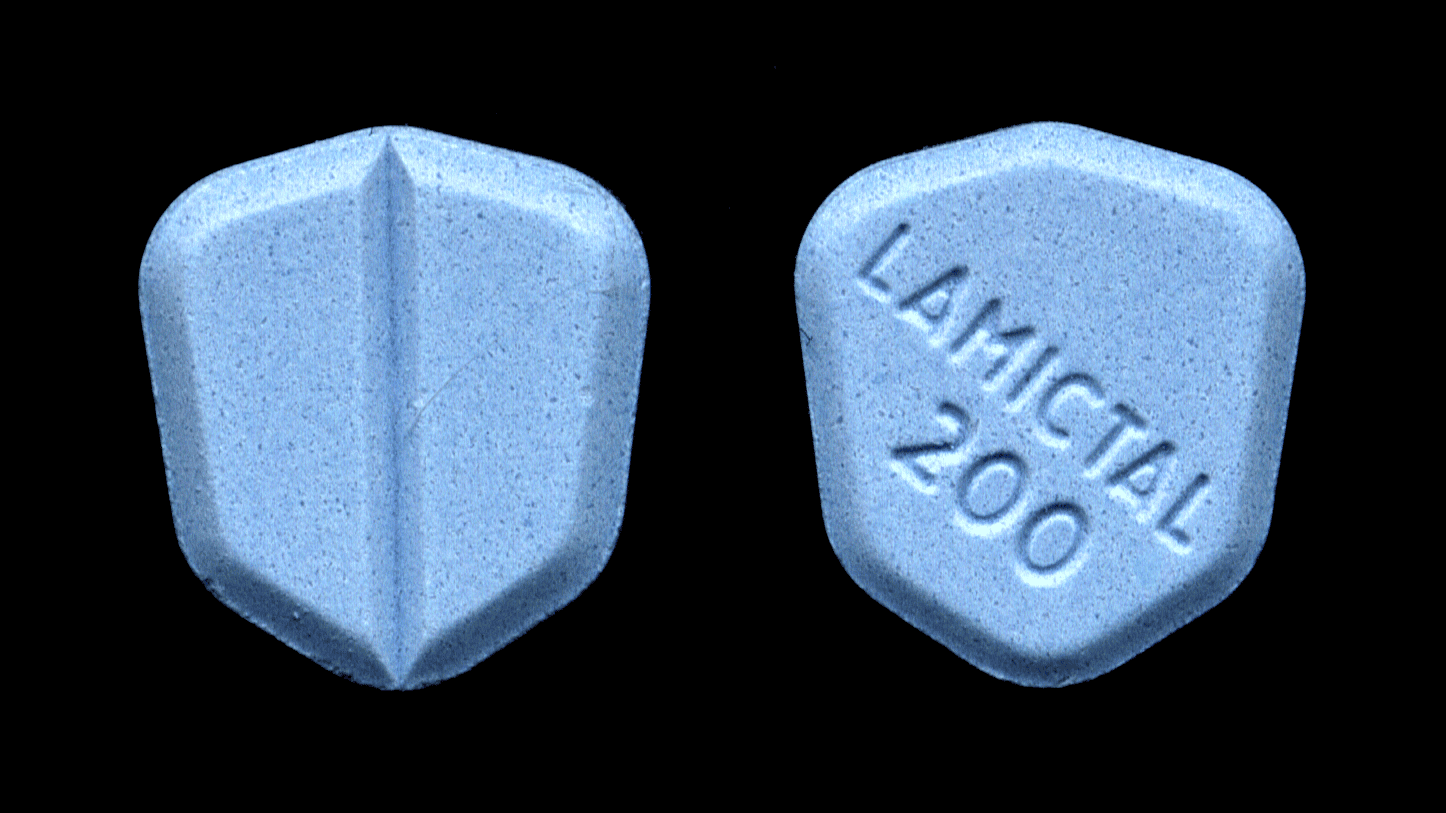Acne is a common skin condition that affects more than 50 million people globally. It can be due to hormones, genetics, stress, and lifestyle choices such as diet and exercise. One study found that Lamictal (lamotrigine) may cause acne in some patients. This blog post will explore the link between this medication and acne to help you decide if it’s right for you or not. Read on.
What Is Lamictal?
Lamictal is the brand name of the generic drug lamotrigine, which treats epilepsy, bipolar disorder, and certain types of chronic pain. It’s commonly known for its seizure prevention uses. Under the brand name Lamictal XR, this medication can also treat depression.

Does Lamictal Cause Acne?
Lamotrigine works by reducing the amount of sodium released into cells. It can prevent nerve damage in the brain by lessening erratic neural activity. While it can effectively treat epilepsy and bipolar disorder, some people have reported developing acne as a side effect.
There are two mechanisms by which Lamictal causes acne, according to one study. The first is through endocrine disruption, which means that the medication can cause the hormones in your body to act differently than usual.
That can lead to an increase of testosterone or other androgens (male sex hormones) in some people, leading to increased oil production and acne along with menstrual irregularities.
The second is directly affecting the sebaceous glands responsible for producing the oil that lubricates your hair and skin. In this case, Lamotrigine would cause these glands to produce more oil, leading to acne.
Is There Proof That Lamictal Causes Acne?
Yes, there have been multiple studies that have shown a link between Lamictal and acne. One study involved using the drug on mice. It found that the drug increased testosterone levels in male mice, which causes acne in humans. That led them to suggest that it may do the same thing in people.
Another study also noted that Lamictal had links to worsening acne in people. The study involved over ten thousand patients who had developed severe acne after starting taking the drug.
Can You Take Lamictal if You Have Acne?
If you’re taking Lamictal and have mild or moderate acne, it should be okay to continue taking the drug. However, if you’re taking it and your acne becomes severe (a condition known as Acne Conglobata), you may want to speak with your doctor about switching medications.
How Does It Work
1. Lamotrigine is an anti-epileptic drug (AEDs)-it is helpful in partial seizures or generalized tonic-clonic seizures. It is also used in bipolar disorder to stabilize mood swings and help with depressive symptoms.
2. It interferes with releasing neurotransmitters, chemicals that nerve cells use to communicate with each other. That leads to the stabilization of abnormal electrical activity in the brain, which prevents seizures.
3. Lamotrigine inhibits the release of glutamate, a neurotransmitter involved in pain and inflammation (this works similarly to medications such as Neurontin and Lyrica). As a result, it’s useful for chronic pain caused by nerve damage such as post-herpetic neuralgia, neuropathy caused by diabetes or other autoimmune conditions, and some fibromyalgia symptoms.
4. Lamotrigine can also affect another neurotransmitter-calcium channels-and has been used off-label to treat pain related to small fiber neuropathy.
5. It works by slowing certain nerve impulses in the brain-it doesn’t affect all nerve impulses, just the ones that cause seizures and some pain.
Possible Side Effects of Lamictal
● Behavioral changes, including aggression and hostility
● Mood swings
● Changes in thinking ability
● Decreased sex drive or erectile dysfunction
● Rash, itching, or swelling of the skin, lips, and mouth
● Muscle spasm, tremors/shaking, nausea, and vomiting
● Difficulty concentrating and paying attention
How to Take Lamictal
1. Take this medication by mouth as directed by your doctor-usually twice a day with or without food. Do not crush, chew, break, or open a lamotrigine extended-release tablet (Lamictal XR). Swallow the whole pill.
2. Lamictal XR is usually given for 12 weeks-do not stop taking it without talking with your doctor first.
3. Take the medication regularly to get the most benefit from it. Make a note of when you should take it, such as first thing in the morning. Do not skip doses or suddenly stop taking this drug.
How Does Lamictal Affect Acne?
Lamotrigine has been linked to worsening acne in some people, although it’s unclear whether it is a common side effect or rare. The reason behind the link isn’t known. But, some researchers think that lamotrigine may change how the hormones inside of our bodies work. These hormones can influence our skin, and oil production-which may cause acne.
However, there isn’t enough evidence to prove that lamotrigine causes acne in most people who take it. Researchers also haven’t shown how this side effect works in the body (hormones and other factors don’t seem to link to acne worsening while taking lamotrigine).
What if You Experience Lamictal-Related Acne?
Contact your doctor right away if you notice severe acne on or around your skin after starting lamotrigine. Don’t stop taking this drug without first speaking with them. They may switch you to a different medication if your acne becomes too severe while taking lamotrigine.
You should also avoid other medications that can worsen acne-including oral steroids like prednisone (Deltasone, Orasone), birth control pills, and estrogen therapies used during menopause.
If you stop taking lamotrigine while taking oral steroids for acne, your skin condition may worsen. That is because the steroid can change how certain cells in your body work-including changing how you respond to lamotrigine.
However, lamotrigine could reduce the effectiveness of birth control pills. Therefore, talk with your doctor if you’re taking this medication and using hormonal contraceptives.
To avoid serious side effects, it’s important to tell your doctor about all medications and supplements-including those you take without a prescription.
How to Treat Lamictal-Related Acne?
You can’t stop taking lamotrigine without first talking with your doctor. If you have severe acne while taking this medication, they may find a different drug that works for you. There are a few things you can try to get rid of your acne while you wait for the medication:
● Wash affected areas of skin gently with soap and water and pat dry-don’t scrub the skin.
● Use a mild cleanser (or baby shampoo) twice per day to keep your skin clean and clear of excess oil and dirt that can worsen acne.
● Wear loose clothing made from natural fibers, such as cotton or silk-that may help prevent irritations caused by scratching.
● Avoid harsh cleansers, alcohol-based toners, or scrubs that can strip the skin of natural oils-this may worsen acne.
● Use oil-free makeups, lotions, and moisturizers on affected areas of your skin (instead of creams with oily ingredients).
Is There Anything Else You Can Do About Acne While Taking Lamictal?
In addition to the suggestions above, you may want to try an over-the-counter acne cream or gel that contains benzoyl peroxide or salicylic acid. You may also try a natural remedy for acne, such as tea tree oil.
There isn’t much scientific evidence about these treatments, so it’s unclear whether they’ll help or worsen acne. However, experts say that benzoyl peroxide and salicylic acid are unlikely to cause side effects if applied directly to the skin. Therefore, you may want to try these options anyway.
Use them at least twice per day more often if the acne worsens (redness, swelling, and pain can happen during bad reactions to benzoyl peroxide). Also, if you try tea tree oil, do not get it on sensitive areas of your face or body. It can cause rashes and irritation, which may make your acne worse.
Conclusion
Acne is a prevalent skin problem that affects millions of people throughout the world. While there are many potential causes, one treatment option may include Lamictal medication to help manage the symptoms. Before starting any prescription medications, it’s essential for patients with acne or other skin conditions to consult with their doctor about possible side effects and how they might affect them individually.
